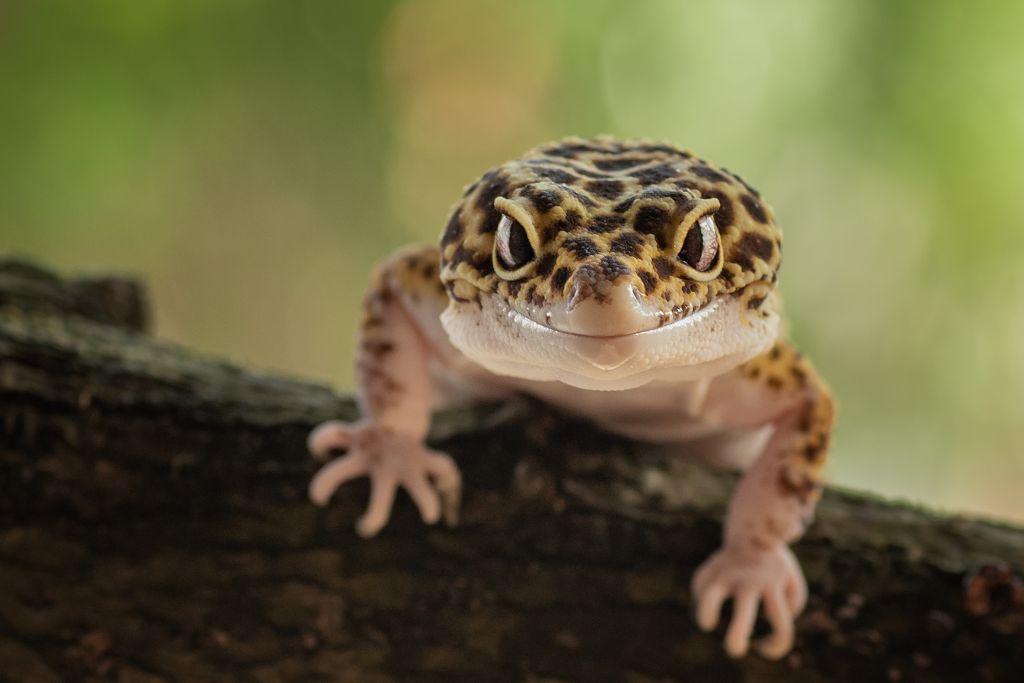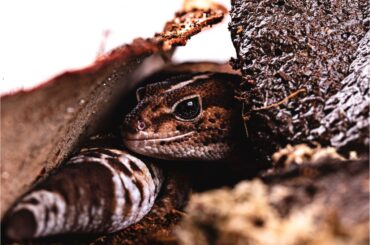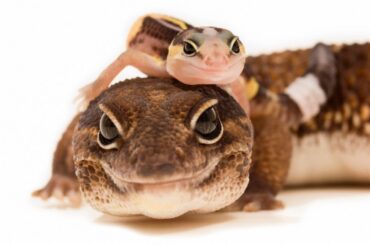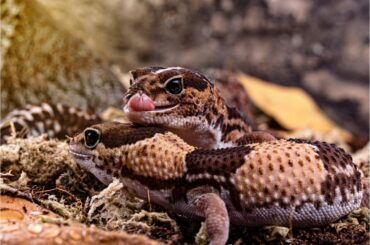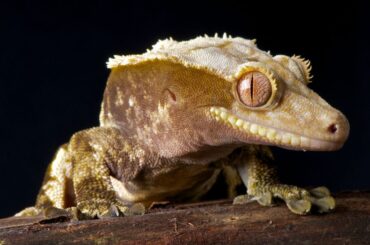Have you ever wondered how long a leopard gecko will live? Could they outlive your other pets in your home?
Leopard geckos, scientifically named Eublepharis macularius, are taken care of as pets because they are calm and possess a gentle personality. Because of how adorable and soft they appear, geckos are a well-liked reptile among pet owners and fans.
Despite being small, the average leopard gecko’s lifespan is over 20 years when offered the right conditions and care.
This article will explore different factors influencing leopard geckos’ lifespan in captivity and in their wild habitat. Let’s explore and unlock their secret for an enigmatic lifespan!
Lifespan In Captivity
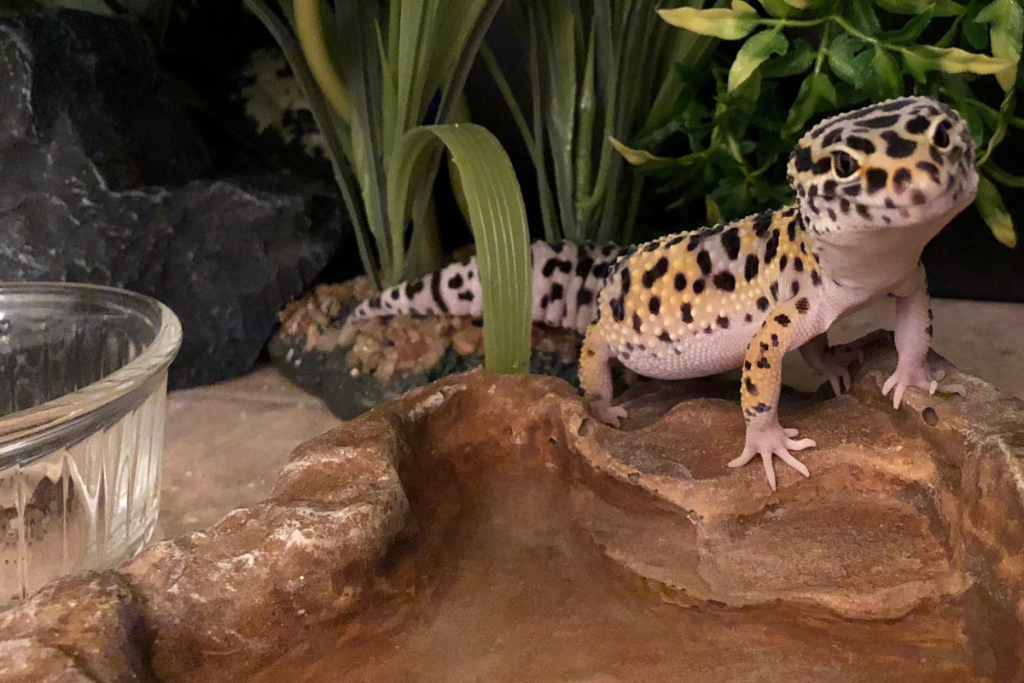
Did you know that leopard geckos tend to live for about 15 to 25 years? You can consider that as an excellent lifespan for a pet since it’s cool to have a lizard buddy who will stick with you for an extended timeframe.
However, some geckos outlive others due to several factors, such as genetics, gender, and husbandry practices. Male geckos tend to live longer than female ones, and how you care for them matters for them to live their most extended and happiest lives.
Factors Affecting Lifespan In Captivity
As mentioned above, leopard geckos may live for different lengths when kept as pets. These are the several factors that affect their lifespan in captivity:
Genetics
Leopard geckos inherit traits from their parents. Good genes will help them live for a long time. For example, a leopard gecko in Germany lived for about 40 years due to the excellent genetics they acquired from their parents.
Gender
Female leopard geckos’ lifespans in captivity are shorter than male leopard geckos’ lifespans. This is because female geckos are responsible for laying and caring for eggs, which makes them weaker.
Environment And Tank Setup
Creating an excellent environment for your geckos is crucial for their overall well-being. A well-maintained home with the right temperature, light, and hiding spot in their tank keeps them safe and stress-free.
Illnesses And Care
Regular check-ups are non-negotiable for providing proper care and nutrition for your leopard geckos. Taking leopard geckos to the vet often and ensuring they eat healthy foods will make a big difference in their health and the length of their life.
Lifespan In The Wild
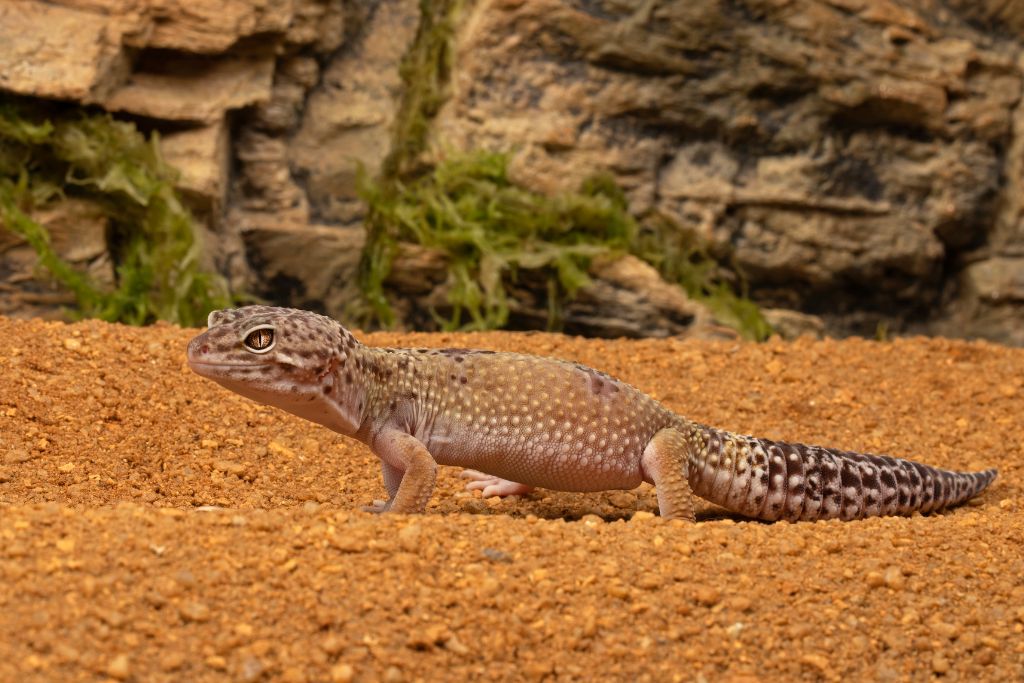
Leopard geckos are reptiles that can live in the wild and in people’s homes as pets. In the wild, geckos’ usual lifespan would be around 8 to 10 years, compared to 15 to 25 years when cared for at home as pets.
Their natural habitat is quite challenging since they live where the weather is unpredictable and tricky. They naturally live where there are sudden temperature changes, usually described as hot during the day and cold at night.
Any drastic temperature change can cause discomfort for the geckos. In addition, potential predators are present in the wild, making it a less safe space for the reptile.
Factors Affecting Lifespan In The Wild
Leopard geckos’ lifespan in their natural habitat is mainly affected by different factors that impact their survival and well-being. Here are the factors affecting their lifespan in the wild:
Predation And Injuries
Leopard geckos are more likely to get hurt when they are trying to protect themselves from bigger animals that are trying to eat them in their natural environment.
Parasites And Genetic Defects
Sometimes, leopard geckos can get tiny creatures or parasites inside their bodies. Thus, being in the wild will not give them access to health care.
Untreated bodily parasites and genetic defects in their bodies will cause sudden deaths due to complications such as a weaker body and other related health problems.
Tips For Increasing Lifespan
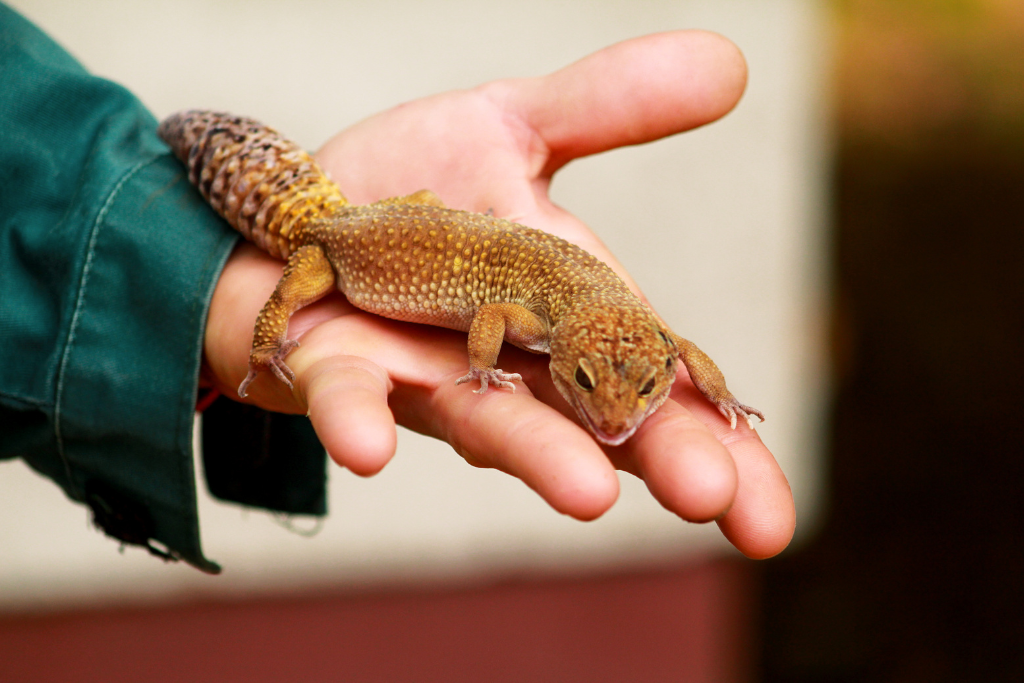
Leopard geckos’ lifespan is considered long, mainly when they are provided with proper care. Below are some tips for increasing the lifespan of leopard geckos:
Provide Right Housing: You can set up a suitable cage for leopard geckos while considering the right temperature, the correct hiding area, and flooring that won’t cause problems if it gets eaten.
Maintain Proper Temperature And Lighting: Maintaining a perfect temperature of 85 to 88°F (29 to 31°C) during the day and a slight decrease at night is recommended. You can use UVB lighting to aid calcium metabolism.
Present A Balanced Diet: Appropriately-sized insects, such as crickets, mealworms, and Dubia roaches are among the foods your leopard geckos should regularly consume for their overall health.
Keep Them Hydrated: Locating a shallow water dish inside the cage is essential to hydrating your geckos. Always refill and clean the water dish to avoid bacterial buildup.
Clean Enclosure Regularly: Remove any unnecessary waste or uneaten foods from the enclosure regularly and perform a deep cleaning procedure scheduled every month.
Handle Your Geckos With Care: Avoid touching geckos during molting periods, and be as gentle as possible when there is a need to handle them.
Health Monitoring: Stay informed about your gecko’s behavior, looks, and appetite level since significant changes can indicate health issues requiring your attention and care.
Preventive Vet Visits: It is vital to schedule regular vet visits for thorough check-ups and informative health advice to prevent diseases and address potential health concerns.
Avoid Overbreeding: This will benefit female leopard geckos since overbreeding will lead to stress and possibly cause sudden deaths.
Enrichment: You can give them more mental activity inside their enclosure by putting up safe places to climb and other things for them to discover.
Quarantine New Additions: Make it a habit to quarantine additional geckos in their enclosure. This will help prevent the possible spread of potential diseases inside their homes.
Stress Reduction: Be sensitive enough to cut out loud noises, sudden vibrations, and frequent handling. This will keep them from getting stressed, which can lead to diseases.
Conclusion
Proper care and responsible pet ownership should be practiced to increase a leopard gecko’s longevity. It is vital to know and understand the basic ways of caring for them and the necessary factors to keep them safe both outside in the wild and inside their enclosures.
It is with the utmost priority to follow and implement all the best care tackled in this article to ensure the overall well-being, good health, and long life of leopard geckos.
FAQs
How Long Do Leopard Geckos Live As Pets?
They can live as pets for about 15 to 25 years. This may also vary depending on genetics, gender, environment, tank setup, illness, and care.
Can Leopard Geckos Live 30 Years?
Yes, this is possible since there was a leopard gecko in Germany who lived for about 40 years due to its excellent genetics.
Are Leopard Geckos Hard To Keep Alive?
No, they are considered relatively easy to care for as reptiles. They can live longer if provided with good health care, a clean environment, and proper feeding.
How Long Can Leopard Geckos Go Alone?
It is a general rule that most geckos can survive being alone for one or two days.

